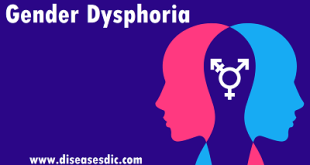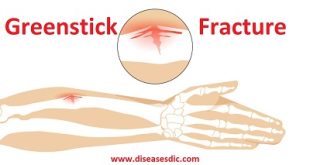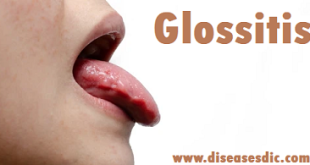Genital Warts – Overview
Genital warts are contagious, fleshy growths in the genital or anal area. They are one of the most common types of sexually transmitted infections. They are also known as venereal warts or condylomata acuminate. They are caused by the human papillomavirus (HPV), and they are a symptom of HPV.
Genital warts consist of fibrous overgrowths covered by a thickened, outer layer. They can appear around a man’s scrotum, anus, and penis, or a woman’s vulva, cervix, vagina, or anus. They are usually benign, or non-cancerous, but some types can become cancerous in time.
In appearance, genital warts are often flesh-colored or gray swellings. If several clusters together, they may resemble a cauliflower. Some may be too small to be seen by the naked eye. About 1 in 100 sexually active people in the United States have genital warts. Between 2011 and 2014, the prevalence of HPV was 7.3 percent amongst adults aged 18 to 69 years.
It is possible to have HPV without showing symptoms. Genital warts often appear about 3 months after infection. However, in some cases, there may be no symptoms for many years.
Pathophysiology
Human papillomavirus (HPV) invades cells of the basal layer of the epidermis, penetrating skin and mucosal microabrasions in the genital area.
A latency period of 3 weeks to 9 months may ensue. Following that period, viral DNA, capsids, and particles are produced. Host cells become infected and develop the morphologic atypical koilocytosis of genital warts.
Most frequently affected are the penis, vulva, vagina, cervix, perineum, and perianal area. These mucosal lesions occasionally can be found in the oropharynx, larynx, and trachea. HPV-6 even has been reported in other uncommon areas (eg, extremities).
Multiple simultaneous lesions are common and may involve subclinical states as well as different anatomic sites. Subclinical infections have an infectious and oncogenic potential. However, most infections are transient and clear up within 2 years without intervention.
Consider the possibility of sexual abuse in pediatric cases; however, remember that infection by direct manual contact or, rarely, by indirect transmission from fomites may occur. Additionally, passage through an infected vaginal canal at birth may cause respiratory lesions in infants.
What Causes Genital Warts (HPV)?
Genital warts are caused by human papillomavirus (HPV). Over 100 types of HPVs have been identified; about 40 of these types have the potential to infect the genital area.
- Most genital warts are caused by two specific types of the virus (HPV-6 and -11), and these HPV types are considered “low risk,” meaning they have a low cancer-causing potential. Other HPV types are known causes of premalignant changes and cervical cancers in women. HPV-16, one of the “high-risk” types, is responsible for about 50% of cervical cancers. HPV types 18, 31, 33, 35, 39, 45, 51, 52, 56, 58, 59, and 68 are other known “high risk” virus types. High-risk HPV types are also referred to as oncogenic HPV types. HPV is believed to cause 100% of cases of cervical cancer.
- Common warts are not the same as genital warts and are caused by different HPV types that infect the skin.
The viral particles are able to penetrate the skin and mucosal surfaces through microscopic abrasions in the genital area, which occur during sexual activity. Once cells are invaded by HPV, a latency (quiet) period of months to years may occur, during which there is no evidence of infection.
- Generally, about two-thirds of people who have sexual contact with a partner who has genital warts develop them within three months.
- Genital warts are indirectly associated with the use of birth control pills due to increased sexual contact without the use of barrier protection, multiple sex partners, and having sex at an early age.
Who’s at Risk?
Anyone who’s sexually active can get or spread HPV.
Some things can make you more likely to get genital warts. They include
- Having more than one sex partner (or a partner who does)
- Being pregnant
- Having a weakened or damaged immune system
- Smoking
There’s a vaccine for people 9 to 26 years old. You get it as three injections over a 6-month period. Or you can get the same amount of protection from just two shots as long as you get both doses before age 15.
You must get the shots before you’re exposed to HPV in order for it to work. The vaccine won’t protect you if you’ve already been infected with certain HPV strains, but it can protect you from many others, but not all types of HPV you have not been exposed to.
Symptoms of genital warts
Most people who have an HPV infection will not develop any visible warts. If genital warts do appear, it can be several weeks, months or even years after you first came into contact with the virus.
Warts may appear as small, fleshy growths, bumps or skin changes anywhere on the genitals or around the anus. In some cases, the warts are so small they are difficult to notice.
A person can have a single wart or clusters of multiple warts that grow together to form a kind of “cauliflower” appearance.
Warts in women
The most common places for genital warts to develop in women are:
- Around the vulva (the opening of the vagina)
- On the cervix (the neck of the womb)
- Inside the vagina
- Around or inside the anus
- On the upper thighs
Warts in men
The most common places for genital warts to develop in men are:
- Anywhere on the penis
- On the scrotum
- Inside the urethra (tube where urine comes out)
- Around or inside the anus
- On the upper thighs
Other symptoms
Warts are usually painless, although on some people they can become itchy and inflamed. If a wart becomes inflamed, it may lead to bleeding from the urethra, vagina or anus.
The urethra is the tube connected to the bladder, which urine passes through. Warts that develop near or inside the urethra can also disrupt the normal flow of urine.
See treatment of genital warts for more information
Complications of Genital Warts
Pregnancy complications
Enlarged warts may obstruct the path of urine, causing urinary problems in pregnant women. Warts affect the skin of your vaginal walls and vulva. They may bleed or make it difficult for your tissues to stretch during delivery.
Mother-child transmission
Genital warts can also pass from mother to child when the baby passes through the vaginal canal. Infants who develop warts on their mouth or throat may need to have them surgically removed, especially if there is a danger to the baby’s airway.
Cancer
Genital warts and HPV are associated with cervical cancer, and other cancers of the vulva, anus, throat, and mouth.
Genital Wart diagnosis and testing
Your doctor may perform the following tests to check for genital warts and/or related STDs:
- An examination of visible growths to see if they look like genital warts
- Application of a mild acetic acid (vinegar) solution to highlight less visible growths
- A complete pelvic exam and Pap smear (for women)
- A specialized test for high-risk HPV (low risk should not be screened for), collected in a way similar to a Pap smear
- Biopsy of cervical tissue (if abnormal Pap smear or visible abnormality) to make sure there are no abnormal cells that could develop into HPV-related cervical cancer; a cervical biopsy involves taking a small sample of tissue from the cervix and examining it under a microscope.
- Examination of the rectum
Female patients may be referred to a gynecologist (a doctor who specializes in female reproductive health) for further testing and biopsy.
How are genital warts treated?
While visible genital warts often go away with time, HPV itself can linger in your skin cells. This means you may have several outbreaks over the course of your life. So managing symptoms is important because you want to avoid transmitting the virus to others. That said, genital warts can be passed on to others even when there are no visible warts or other symptoms.
You may wish to treat genital warts to relieve painful symptoms or to minimize their appearance. However, you can’t treat genital warts with over-the-counter (OTC) wart removers or treatments.
Your doctor may prescribe topical wart treatments that might include:
- Podofilox
- Imiquimod
- Podophyllin
- Trichloroacetic Acid
If visible warts don’t go away with time, you may need minor surgery to remove them. Your doctor can also remove warts through these procedures:
- This involves freezing off the warts with liquid nitrogen. Cryotherapy may cause a burning sensation, as well as pain and blistering.
- Surgical excision. This involves a doctor cutting away warts. Before the procedure, they will give the person a local anesthetic to numb the area.
- This involves a doctor burning warts off the skin with an electrical device. A person may require a local or general anesthetic.
- Laser therapy. In this procedure, a surgeon uses a powerful beam of light to destroy warts. It can cause pain and irritation afterward.
- Injections of the drug interferon
Home remedies for genital warts
Don’t use OTC treatments meant for hand warts on genital warts. Hand and genital warts are caused by different strains of HPV, and treatments designed for other areas of the body are often much stronger than treatments used on the genitals. Using the wrong treatments may do more harm than good.
Some home remedies are touted as helpful in treating genital warts, but there is little evidence to support them. Always check with your doctor before trying a home remedy.
Can Genital Warts Be Prevented?
Genital warts and other types of HPV can be prevented by a vaccine. The HPV vaccine series is recommended for all kids when they’re 11–12 years old. Older teens and adults also can get the vaccine (up to age 45). Even if someone already has had one type of HPV infection, the HPV vaccine can protect against other types of HPV.
HPV almost always spreads through sex. So the best way to prevent it is to not have sex (vaginal, oral, or anal). If someone does decide to have sex, using a condom every time for sex (vaginal, oral, and anal) helps prevent HPV and other STDs. But condoms can’t always prevent HPV because they don’t cover all areas where HPV can live.
Should Sexual Partners Be Told About Genital Warts?
Someone diagnosed with genital warts should have an honest conversation with sexual partners. Partners need to be seen by a health care provider who can check for genital warts and do screenings for other STDs.
If the couple plan to continue having sex, both people need to understand that a condom will help lower the risk of spreading genital warts/HPV but can’t completely prevent it.
Looking Ahead
If you or someone you know has been diagnosed with genital warts, it is important to:
- Know that HPV can spread to partners during sex, even if there are no warts.
- Tell any sexual partners about warts before having sex.
- Use a condom every time they have sex (vaginal, oral, or anal).
- Get tested for other STDs as recommended by your health care provider.
- Gets all doses of the HPV vaccine.
 Diseases Treatments Dictionary This is complete solution to read all diseases treatments Which covers Prevention, Causes, Symptoms, Medical Terms, Drugs, Prescription, Natural Remedies with cures and Treatments. Most of the common diseases were listed in names, split with categories.
Diseases Treatments Dictionary This is complete solution to read all diseases treatments Which covers Prevention, Causes, Symptoms, Medical Terms, Drugs, Prescription, Natural Remedies with cures and Treatments. Most of the common diseases were listed in names, split with categories.








pls how do I get ride of something white that is coming out from my private part
It might be due to vaginal infection. Hence consult your doctor for appropriate diagnosis of the disease.
Please send me good drugs for genital wart
Imiquimod (Aldara, Zyclara). This cream appears to boost your immune system’s ability to fight genital warts.
Please consult a doctor before using it.
Please send me good name of drugs to treat genital wart
Genital wart treatments that can be applied directly to your skin include: Imiquimod (Aldara, Zyclara). This cream appears to boost your immune system’s ability to fight genital warts. Avoid sexual contact while the cream is on your skin.
very elaborate and straight to the point
I also have warts and I’m pregnant what can I use?
There’s no cure for genital warts, but there are medications available that can treat warts to make them less visible.
If you have medications for genital warts that were prescribed before you became pregnant, you should talk to your doctor before using them. Your doctor may use a topical treatment to remove warts while you’re pregnant if they feel this is safe for you and your pregnancy. You should never treat genital warts with over-the-counter wart removers. These treatments could lead to more pain and irritation as they are harsh, especially for applying on sensitive genital tissue.
what drugs can i use for dis disease
Please have a glance at the post for drugs.
some rush are on my penis,it like bumps,how can I treat it
Please consult a doctor to get treatment.
how some one gets HPV vaccine
All people ages 9 to 45 can get the HPV vaccine to protect against genital warts and/or different types of HPV that can cause cancer. It’s recommended that children get the vaccine at age 11 or 12, so they’re fully protected years before they become sexually active.
pls I saw similar warts around my dick n pubic, I need ur prescription on how to eradicate them
Kindly get the treatment instructions from the above article.
What drug can I use to cure itching on the private part, suddenly got rash on it
Clotrimazole reduces vaginal burning, itching, and discharge that may occur with this condition. This medication is an azole antifungal. It works by stopping the growth of yeast (fungus) that causes the infection.
I was using aldara but the wats are still visible what else can I use
It’s recommended to get advice from a doctor for appropriate prescription of Medications.
please doctor l need medicine for white discharge , yellowish and some rashes on my vagina
For example, yeast infections are usually treated with antifungal medications inserted into the vagina in cream or gel form. Bacterial vaginosis is treated with antibiotic pills or creams. Trichomoniasis is usually treated with the drug metronidazole (Flagyl) or tinidazole (Tindamax).
pls send me a good injection for gential warts
Please consult a doctor to get the prescribed medicines for genital warts.
please I have treated warts on my skin and also taken zincovit is hpv still in my blood after treatment
if you have been treated but still your womb is painful what do you do?
If you have been treated for genital warts but continue to experience pelvic pain or discomfort, it’s crucial to consult with your healthcare provider promptly. Persistent pelvic pain may have various causes, and it’s important to determine the underlying issue for appropriate management. Your healthcare provider may conduct further examinations, tests, or imaging studies to identify the source of the pain and recommend a suitable course of action, which may include additional treatments or interventions. Don’t hesitate to seek medical attention to address any ongoing symptoms and ensure comprehensive care.
how will i know am truly with the infection
Genital warts, caused by the human papillomavirus (HPV), may present as small growths or clusters on or around the genitals. Symptoms can include itching, discomfort, or bleeding during sex. For an accurate diagnosis and appropriate treatment, consult with a healthcare professional, as genital warts may not always cause noticeable symptoms. Regular check-ups are essential for sexual health.
what are the best treatment for genital warths
Please have a glance at the treatment section in the post.